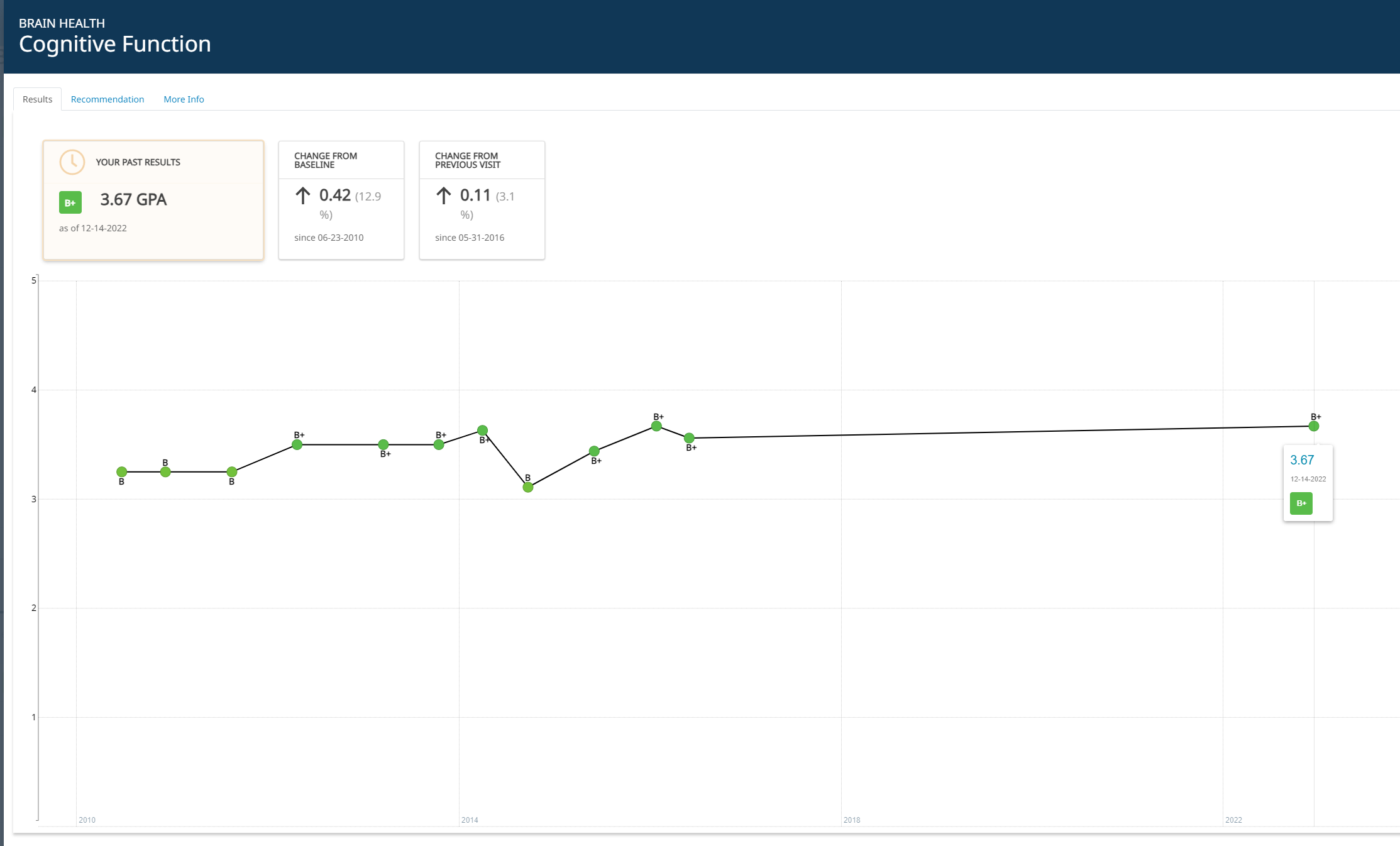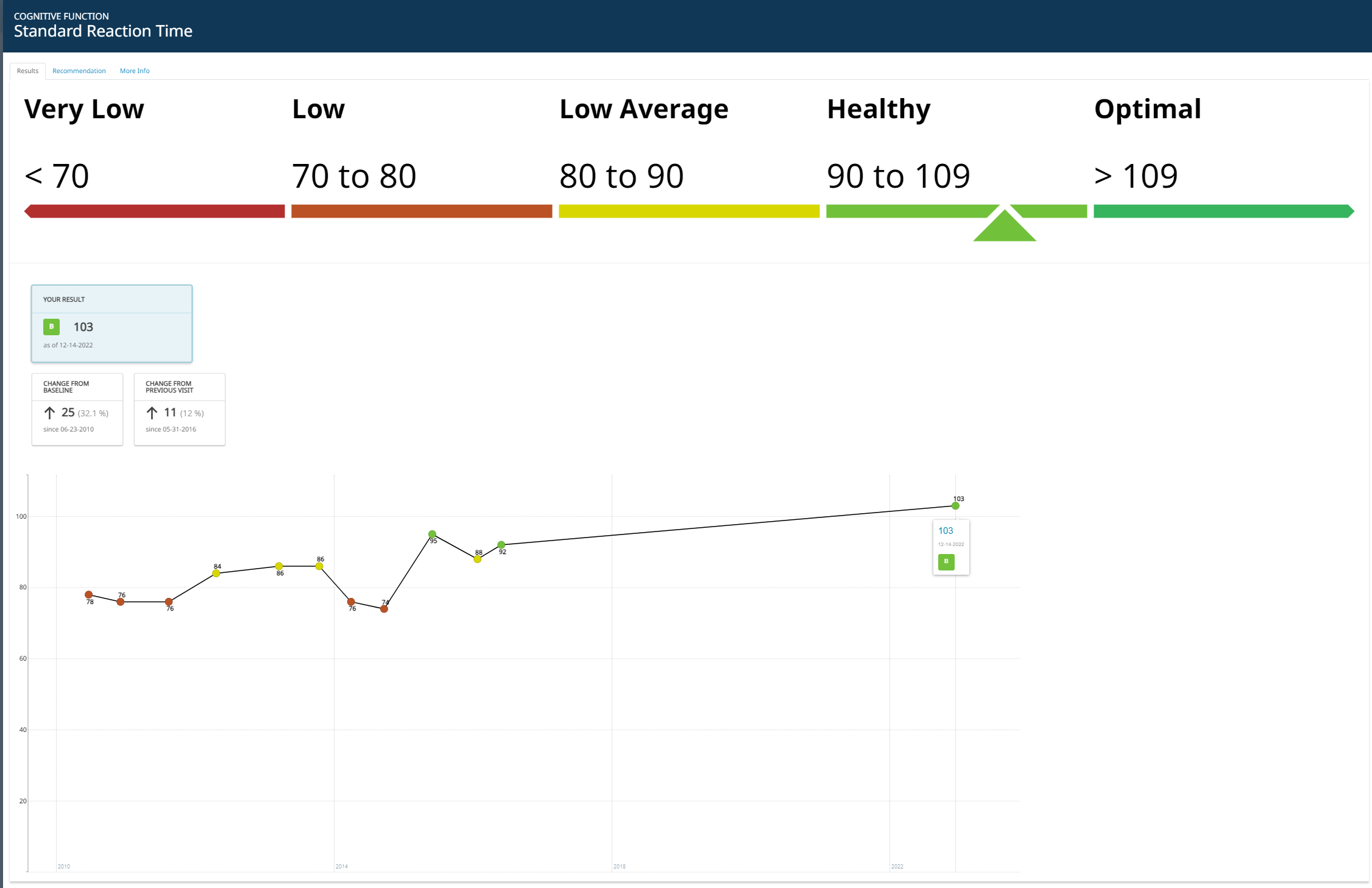For those people here who are interested in Klotho… a message from Steve Perry on a small trial he’s trying to do, perhaps people want to join him:
From: Steve “Endogenous” Perry <[steve@stevegperry.com]
Date: Tue, Jul 11, 2023 at 1:50 PM
Subject: One Injection of a Klotho Boosted Memory in Older Monkeys - it’s now time to do a GRG klotho study!
Hello,
Check out this Klotho article on Singularity Hub that originally appeared in the Journal of Nature. Best quote:
Four hours after administering the protein, the researchers subjected the macaques to a common memory test in which the animals have to remember where food has been hidden in an array of compartments. The monkeys were given two versions of the test, one of which was harder as it featured more compartments.
The team found that the monkeys’ performance on the easy test improved by about 6 percent compared to before the injection, but they did about 20 percent better on the hard one. The researchers continued to test the monkeys for the next two weeks and discovered that the cognitive boost persisted throughout this period.
Also the article goes on to say:
Proving that the therapy could work in humans will take a lot more research, but a Bay Area company called Unity Biotechnology has licensed the rights to UCSF’s work.
Well we are already on our way to proving klotho works in humans. As you may have heard, once GDF11ers down regulate, we offer them the option of taking .5 pg of Klotho per day. Right now, we have about 15 people taking klotho and almost all of them report a cognitive boost, usually in terms of writing and memory, about an hour after they take Klotho.
But you know me, I don’t like anecdotals like “cognitive boost”. My whole philosophy on curing aging is providing hard biomarker evidence that a regimen has efficacy. Therefore, I provide the charts below of my cognitive progress on GDF11 starting in 2014 and klotho starting in 2020. Note I have 3 years of cognitive baselines starting in 2010:
The above charts are from my Physioage Analytics portal where over 800 of my biomarkers are tracked since 2007. The above charts are derived from my scores on the CNS vital signs test which I’ve been taking for over 13 years.
The first chart shows cognitive function score trending, which is a score weighted heavily on reaction time and processing speed as well as some verbal/visual memory scores. Since 2010, I have experienced a cognitive score increase from 3.25 to 3.67, a 13% increase. So no cognitive senescence for me.
The 2nd chart shows is just reaction time from 78 to 103, a 32% increase over 13 years. Note this is not the raw score in milliseconds, but a composite score CNS VS generates to be consistent with other scores and higher is better. Note that I started on GDF11 in 2014 and you can see a big jump from 74 to 95 from 2015 to a year later.
You may ask well what’s from GDF11 and what is from klotho? All GDF11ers see improvement in reaction time due to increased blood flow to the brain as well as increased neuronal autophagy. But klotho surely has helped get me to a record cognitive function score of 3.67. Though I will admit I have no data for klotho on its own.
To see how effective klotho is by itself, I propose we conduct a klotho study within the GRG. This should not be too hard since klotho, unlike GDF11, is pretty easy to dose. For anyone who is interested, I propose you do the following:
- Read my klotho paper on GDF11Rejuvenation.com under About.
- Buy two codes at a cost of $35 each, from CNSVS.com. Take a baseline CNS Vital Signs now and another one after 3 months on Klotho. Send me the PDF of your results and I will enter them into Physioage Analytics and send you a link so you can review your cognitive report card, trending of all CNS VS biomarkers, etc.
- You can purchase 25 ug for $218 klotho from BuckyLabs here. Also get two 30 ml vials of bacteriostatic water and dilute down to 1 unit = .1 pg. After baseline CNS VS, start dosing as per the klotho paper.
- Bonus points for those who put a CGM on their arm and track average glucose on klotho! Average glucose should come down pretty dramatically on klotho.
Are you in?
Steve
Steve Perry
CEO
GDF11Rejuvenation.com

